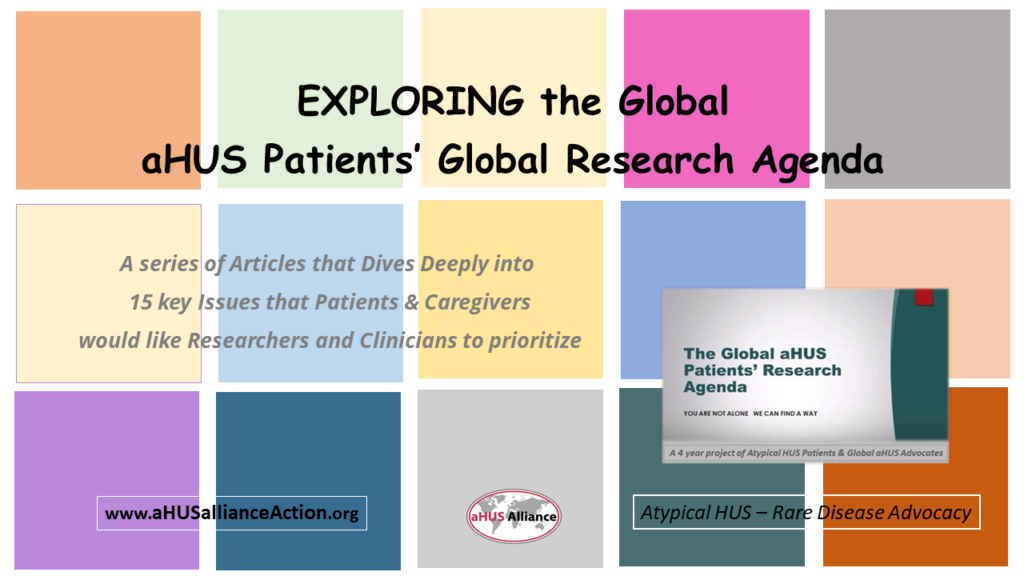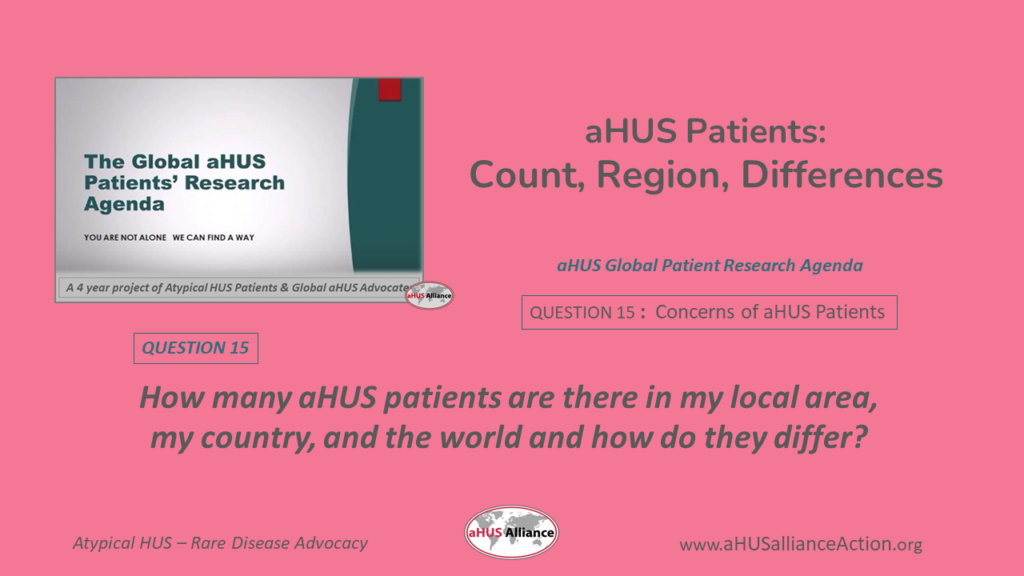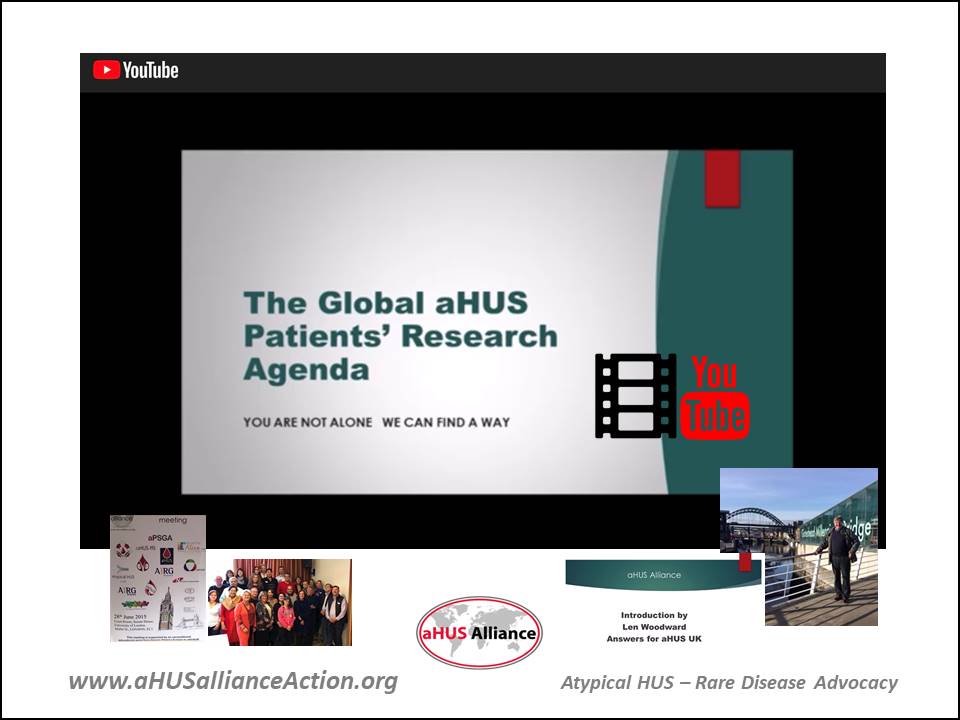
An in depth exploration of the aHUS Patients’ Global Research Agenda, this series of
articles dives deeply into 15 key questions that patients & caregivers
would like researchers and clinicians to prioritize.
.
The aHUS Alliance, an umbrella group of aHUS advocates and patient groups in over 30 nations, launched its aHUS Global Patients’ Research Agenda on Rare Disease Day 2019. An international project developed over 4 years, the aHUS Global Patients’ Research Agenda lists 15 central questions grouped into 5 main categories: Causes and Precautions, Diagnosis, Treatment, Impact: Clinical/Psychological, and Impact: Socio-Economic.
The aHUS Global Patients’ Research Agenda was crafted using input from an alliance affiliates group in 2015, survey data from the 2016 aHUS Global Poll, and international entries from aHUS patients and caregivers for the aHUS Alliance 2017 Rare Disease Day video project.
The importance of the aHUS Global Patients’ Research Agenda was described in this aHUS Alliance video, with the agenda itself available as a print friendly pdf document offered in 3 languages: EN, ES, and FR.
Each question from the Global aHUS Patients’ Research Agenda
is explored independently & in depth in the series of articles below.



Q5 Can a clinically effective therapy be developed that is affordable for all aHUS patients?


Q9 Will there be a cure eventually?


Q13 How does living with aHUS impact on education and work?
Q14 Do aHUS families have all the correct information to make informed family planning decisions?

Q15 How many aHUS patients are there in my local area, my country and the world and how do they differ?
LEARN More about the Background & Importance
of the Global aHUS Patients’ Research Agenda

